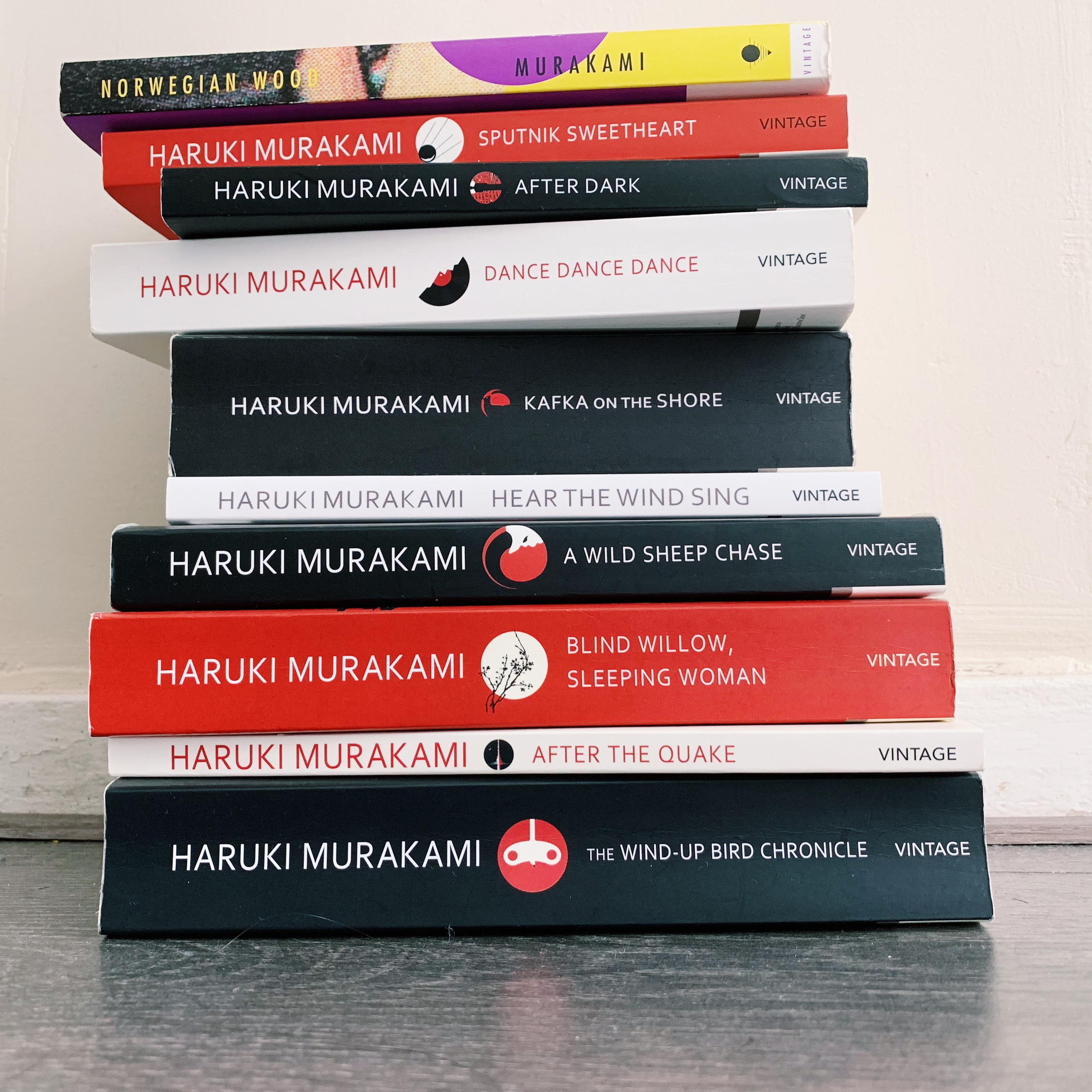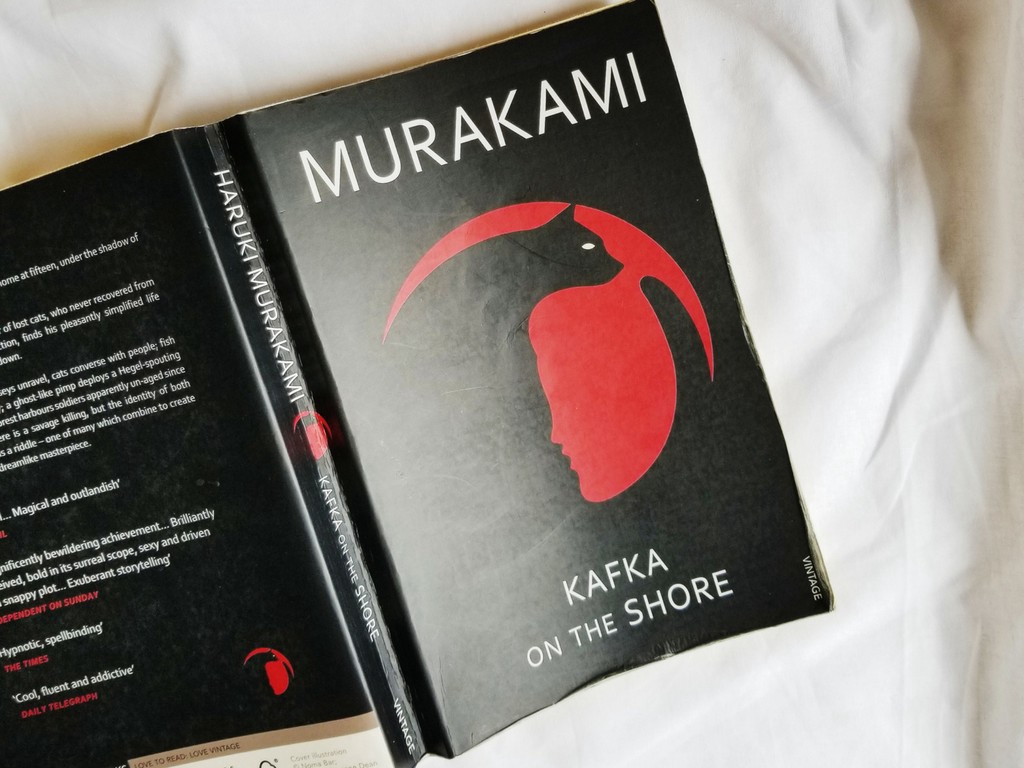
The Wonderful Stories of Haruki Murakami: Short Stories and Novels You Must Read
Talking cats and monkeys, lost and peculiar characters, jam-packed bars and cafes, non-stop classical and jazz music, abandoned locations, endless train stations of Japan, never-ending loneliness and existential conundrums, unforgiving religious cults, and secret realms, and much more...
This is just a flimsy outline of the numerous aspects you will find in the short stories and novels of Haruki Murakami, the famous Japanese novelist and short-story writer. He is one of the most celebrated Japanese novelists with a massive readership not just in Japan but internationally as well, with his books being translated into more than 50 languages and selling millions of copies worldwide.
Haruki Murakami was born and raised in Kyoto, Japan. As parts of Japanese social order – graduate, work, get married, what he had initially anticipated but what he did was utterly opposite – married, started working, and then graduated. Instead of enjoying happy-go-lucky days of youth, Murakami spent his days paying off loans and doing hard labor. After a few years, he moved from Kyoto to the hustling and bustling eastern capital of Japan, Tokyo, where he opened a jazz bar and finally managed the ups and downs of his mundane life. Just like every other writer finds an anomalous or typical inspiration for writing stories, Murakami also found an odd yet satisfying moment to write and tell stories. Being an aficionado of baseball, one day on a bright afternoon Murakami decided to go to a baseball game at Jingo Stadium. Sitting on the grassy slope sipping a chilled beer while watching Yakult Swallows against the Hiroshima Carp, the ball met the bat, and a smacking sound echoed throughout the stadium followed by a mild round of applause. Right there and then, for no reason at all, Murakami was struck by a thought like a bolt out of the blue, “I think I can write a novel”. Murakami described the feeling as a revelation or maybe epiphany. After returning home, he purchased a bundle of paper and a fountain pen since there were no word processors or computers at that time and started writing. After that every night, late from work, he would sit at the kitchen table and write. Rest is the history!
Literary genres:
Fiction, magical realism, surrealism, postmodernism, bildungsroman, picaresque, realism. His work spans among other genres as well like sci-fi, fantasy, crime, and non-fiction but the most common and notable facet in almost every novel is magical realism. Murakami’s representation of Japanese culture and mores with the blend of Western-style and traditions weave his magical realism stories into textured layers of reality that are not just mesmerizing but evocative and entertaining. Many dub Murakami as “King of Japanese Magical Realism”.
Most notable works and a beginner’s guide to enter Murakami’s universe:
Kafka on the Shore:
It is about a 15 year old boy named Kafka Tamura, who is the protagonist (of the novel’s first string) runs away from home beneath the silhouette of his father’s sinister prophecy; interconnected with Oedipus’s curse. Another protagonist (of the novel’s second string) Nakata, a simpleton, who is able to talk and track, lost cats. As the chronicle unravels itself, cats talk, un-aged World War II soldiers and ghosts appear, Johnnie Walker and Colonel Sanders make cameo appearances from time to time, both the strings connect and combine, you end up with a bewildering and trancelike masterpiece.Norwegian Wood:
A vast majority of Murakami readers consider this as his magnum opus. It sold about 11.16 million copies worldwide. The story is told from the first-person perspective of Toru Watanabe, a 37 year old seated on a plane hears a sweet orchestral version of the Beatles song “Norwegian Wood” and suddenly recalls his university days in Tokyo where he fell in love with two women; Naoko, the girlfriend of his best friend who commits suicide; Midori, a madcap who does as she pleases. A classical romance conundrum! The novel is an evocative story filled with themes of perturbed friendships, casual sex, love, loss, grief, death, suicide, truth, and lies, education, and existentialism.The Wind-Up Bird Chronicle:
For this novel, Murakami received the Yomiuri Literary Award, which was awarded to him by one of his harshest former critics, Kenzaburo Oe. The tale begins with the narrator Toru Okada, an unemployed guy who likes spaghetti and lemon drops, lives with his wife, Kumiko. One day, their cat disappears so his wife tells him to go out and look for it. Thus, the sequence of events unfold in a bizarre manner as Toru’s wife also disappears and meets peculiar allies and antagonists like Noboru, a mediagenic politician with a hidden sinister facade; May, a teenage girl who boycotts going school; Lt. Mamiya, a retired army officer who tells Toru tales of Japanese occupation; Nutmeg and Cinnamon, mother-son duo who aid Toru. Toru also must climb down into the bottom of an empty well and uncover a way into a secret realm so that he finds his wife and their cat.A Wild Sheep Chase:
As the title itself hints about a detective story, where justice is beyond your reach and the prospect of joy in life is abandoned. It is an independent sequel and the third book in the “Trilogy of Rat” preceded by two combined novels (Hear the Wind Sing and Pinball, 1973). This novel takes you on a psychedelic adventure about an advertising executive who receives a postcard from his long-lost friend, Rat, and exploits the picture for an advertisement but this picture includes a mythic sheep with a star on its back. Utilizing this picture comes with dire consequences as a mysterious authoritative figure bids the executive to find the mythic sheep or face ominous punishment. Thus begins a wild sheep chase where the unnamed protagonist meets The Sheep Professor, a former agricultural minister; The Sheep man, a character who lives in the mountains dressed as a sheep, and The Sheep, who attempts to take over humanity.1Q84:
The title is a reference to George Orwell’s novel Nineteen Eighty-four and there are a few roundabout references to Orwell’s narrative in the book. The title has quite an interesting pronunciation and hidden meaning – in Japanese the pronunciation of the number “9” and letter “Q” is similar, so the actual Japanese pronunciation is 1984 (the year in which the book is set). The letter “Q” stands for a question mark, 1Q84 is the alternative year that bears a question mark. This name is bestowed by the main female protagonist Aomame, who works as a gym instructor by the day and an assassin by the night. She only kills people who indulge in sexual abuse and receives her orders from an aged powerful female figure named Dowager. Tengo, another main male protagonist who is a math tutor and a writer yet to make a breakthrough. The lives and fates of both Aomame and Tengo are strongly and unknowingly entwined as both of them are set on a dangerous task to save each other from a nefarious religious cult who has hired an investigator, Ushikawa, to hunt them down. The story is written in an urbane, metaphysical, and epic form by Murakami where the year 1984 is the real world and 1Q84 is the parallel world with two moons, unforgiving religious cults, alternate history of Japanese wars, and a town built and ruled by cats.
Short-story collections by Murakami:
If you can’t commit to thick and lengthy novels, don’t fret! Even Murakami declares, “I find writing novels a challenge, writing stories a joy. If writing novels is like planting a forest, then writing short stories is more like planting a garden”.
- The Elephant Vanishes (1993)
- After the Quake (2000) - It is a collection of six short stories written about the Great Hanshin Earthquake that struck Kobe, Japan in Jan 1995. The stories are set at the time of the catastrophic Kobe earthquake and presented in a meticulous, poignant and Kafkaesque manner.
- Blind Willow, Sleeping Woman (2006)
- Men without Women (2017) - Seven stories that are told in-depth and complex style of Murakami describing the perspective and relation of men without women in a philosophical and only one of its kind fictional narrative.
- First Person Singular (2021) – A collection of eight stories by Murakami, as the title suggests all stories are told in a first-person singular narrative.
Non-fiction collections by Murakami:
If you don’t like diving into the realm of fiction where anything is possible! Relax, take a deep breath. Murakami’s gusto for writing runs through the real non-fiction world too.
- Underground: The Tokyo Gas Attack and the Japanese Psyche – The book is about the 1995 terrorist attack conducted by the religious cult Aum Shinrikyo on the Tokyo subway.
- What I Talk About When I Talk About Running – It is a memoir in which Murakami writes about his interest and participation in long-distance running. Murakami started running in the early 1980s and since then has competed in more than 27 marathons and an ultra marathon.
- Absolutely on Music: Conversations with Seiji Ozawa – It is series of conversations that are profoundly special and personal between Haruki Murakami and his close friend Seiji Ozawa, who is a world-renowned Japanese conductor of Orchestra. Both of them present these conversations about music in an appealing and melodious way.
A snippet about Murakami’s writing process:
Murakami discusses in his non-fiction book What I Talk about When I Talk about Running that he leads an extremely disciplined and restricted life. His running balances out the strictness of his writing life, which involves going to bed each night by 10 PM and then rising early between 4 – 5 AM and sitting in silence, early morning to “wait to catch what’s coming”. Murakami describes it as “stepping into the darkness”, where he observes, remembers, and writes down what he sees. After that, he produces 10 pages and runs 10 kilometers, works on his translations, then reads, listens to music, and cooks.
Translators:
Murakami’s work is translated from Japanese to English by Philip Gabriel, Jay Rubin, and Ted Goosen.
Awards:
He has been the recipient of numerous accolades; Franz Kafka Prize, Jerusalem Prize, Noma Literary Prize, World Fantasy Award, Hans Christian Andersen Literature Award, America Award in Literature, and many more. He has been often mentioned as a possible recipient of the Nobel Prize in Literature but when asked about it, Murakami responded with a laugh saying “No, I don’t want prizes. That means you’re finished”. Nonetheless, requested his withdrawal from a couple of award nominations, saying he wanted to “concentrate on writing, away from media attention”, which depicts his inestimable love and passion for writing.
I would like to end this blog with one of my favorite Murakami quotes that will inspire you to write and love him even more, “You have to dream intentionally. Most people dream a dream when they are asleep. But to be a writer, you have to dream while you are awake, intentionally”.



Comments